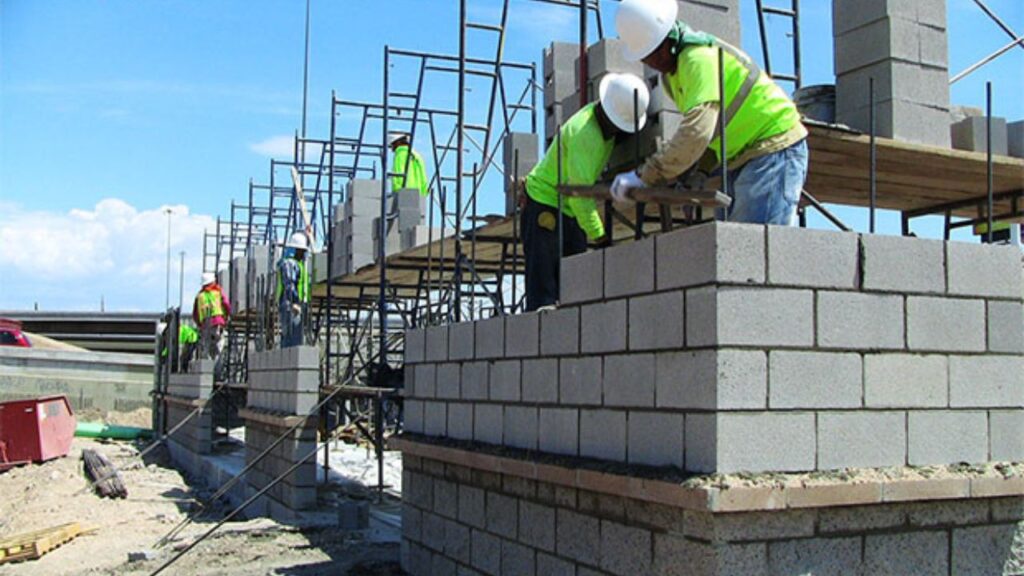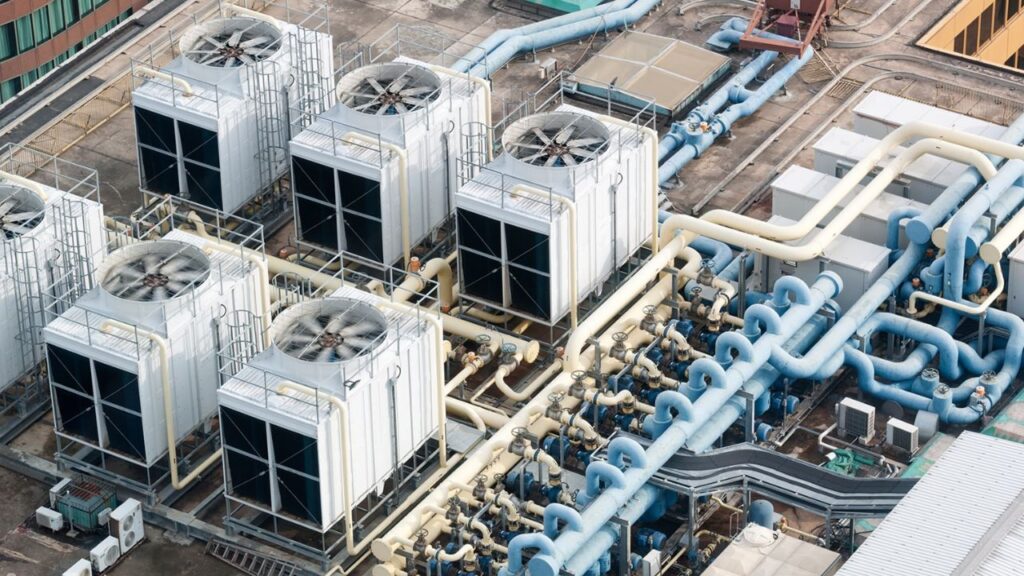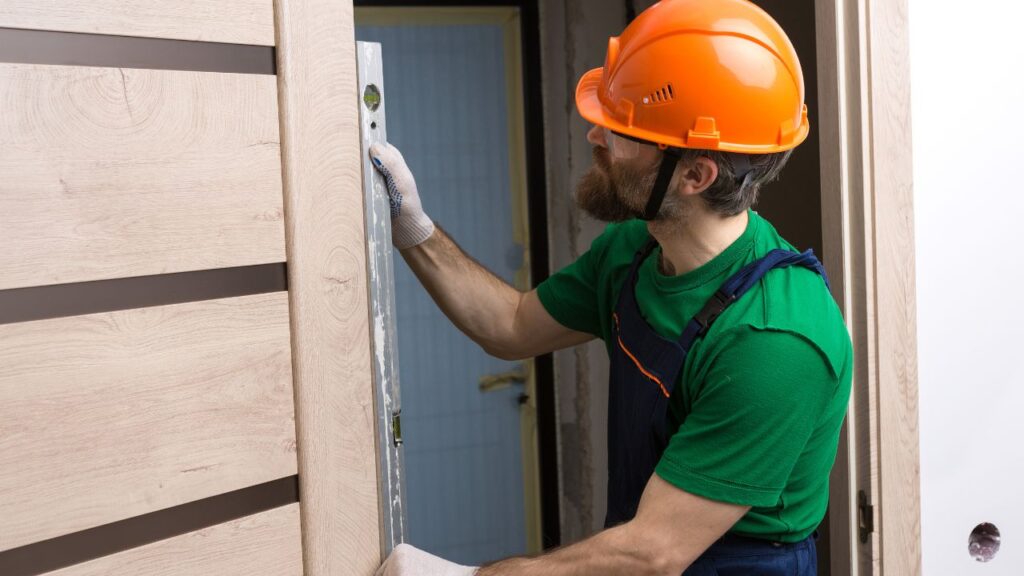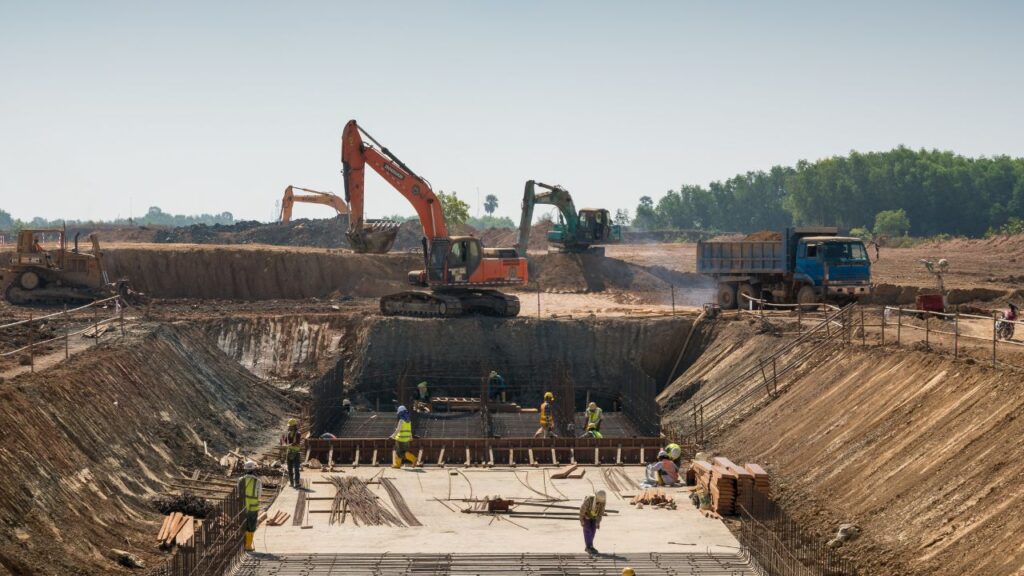Construction Budgeting in Bal Harbour
Leading provider of construction budgeting.
Budgeting is the foundation of any successful construction project. Whether you’re building a residential property, a commercial facility, or a luxury high-rise in Bal Harbour, accurate budgeting ensures that your project runs smoothly from start to finish. Bal Harbour’s dynamic construction market presents unique challenges, such as fluctuating material costs, high labor demands, and strict building codes.
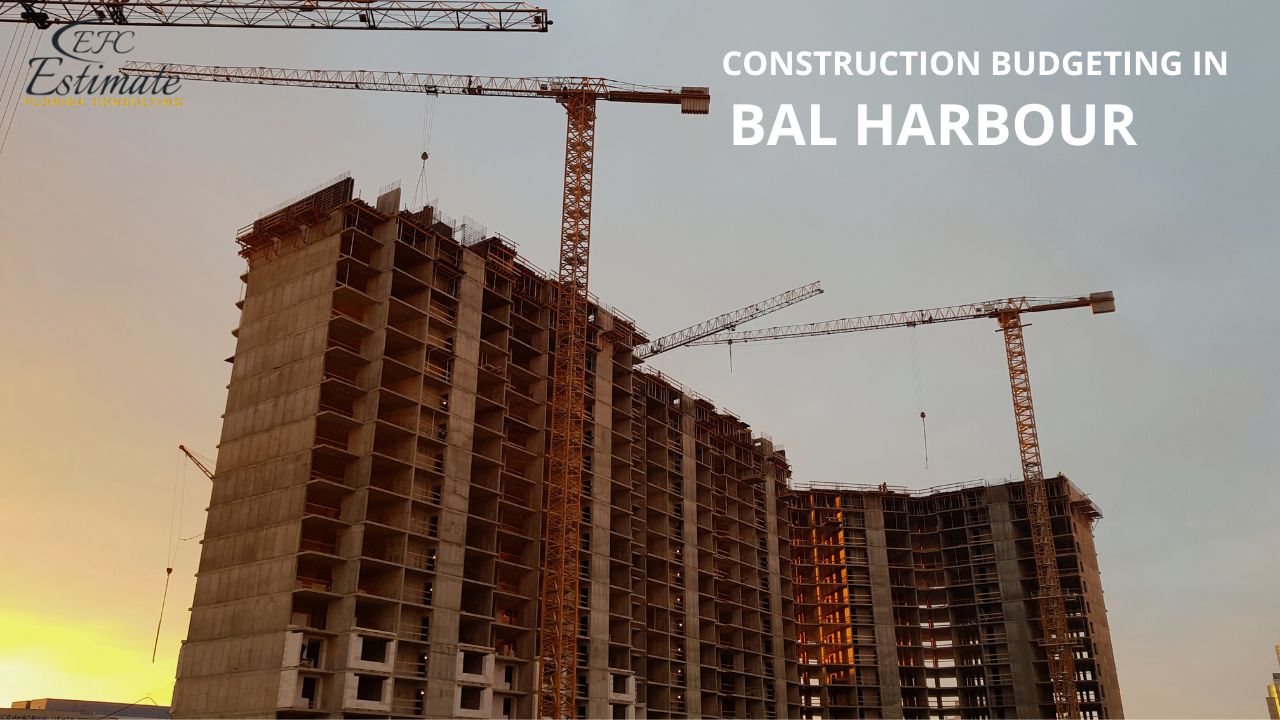
What is Construction Budgeting?
Construction budgeting refers to the detailed planning of financial resources required to complete a project successfully. It includes estimating costs for materials, labor, permits, design, and contingencies to ensure the project stays within the allocated budget.
In Bal Harbour, construction budgeting is critical due to unique local factors, such as strict building codes to withstand hurricanes, high labor demand, and fluctuations in material prices. A well-prepared budget not only minimizes financial risks but also helps contractors and developers avoid costly delays.
Why is Construction Budgeting Important in Bal Harbour?
Bal Harbour is one of the most dynamic construction markets in the United States, with significant challenges and opportunities. Construction projects here are influenced by:
- Hurricane-resistant building requirements: Compliance with the Florida Building Code often increases costs for materials like impact-resistant glass and reinforced concrete.
- Urban development regulations: Bal Harbour’s dense urban environment may require special zoning permits and fees.
- Rising material and labor costs: With continuous growth in the construction sector, demand for skilled labor and high-quality materials drives up prices.
Budgeting helps mitigate these challenges by providing a clear financial roadmap and reducing the risk of overspending.
Get Acquainted with Estimation
Secrets of Successful Bids: Advanced Tips for Construction Managers
Dominate the Competition: Tips to Secure More Construction Bids
Average Construction Costs by Project Type in Bal Harbour
Here’s an expanded breakdown of average construction costs by project type in Bal Harbour, highlighting the significant differences based on design complexity and materials:
Project Type | Average Cost per Square Foot |
Residential (Standard) | $150–$250 |
Residential (High-End) | $300–$500 |
Commercial Buildings | $200–$400 |
Luxury Developments | $450–$700 |
Industrial Facilities | $100–$200 |
Residential Construction
Residential construction costs can vary significantly based on materials, design, and finishes. For a standard home, costs typically range from $150 to $250 per square foot, covering basic materials like drywall, asphalt shingles, and ceramic tiles. High-end homes, featuring luxury materials such as hardwood floors, custom cabinetry, marble countertops, and advanced HVAC systems, can cost $300 to $500 per square foot or more. Architectural complexity, foundation types, and location can further impact costs. Additionally, any specialty work, like landscaping or outdoor features, can increase the final price.
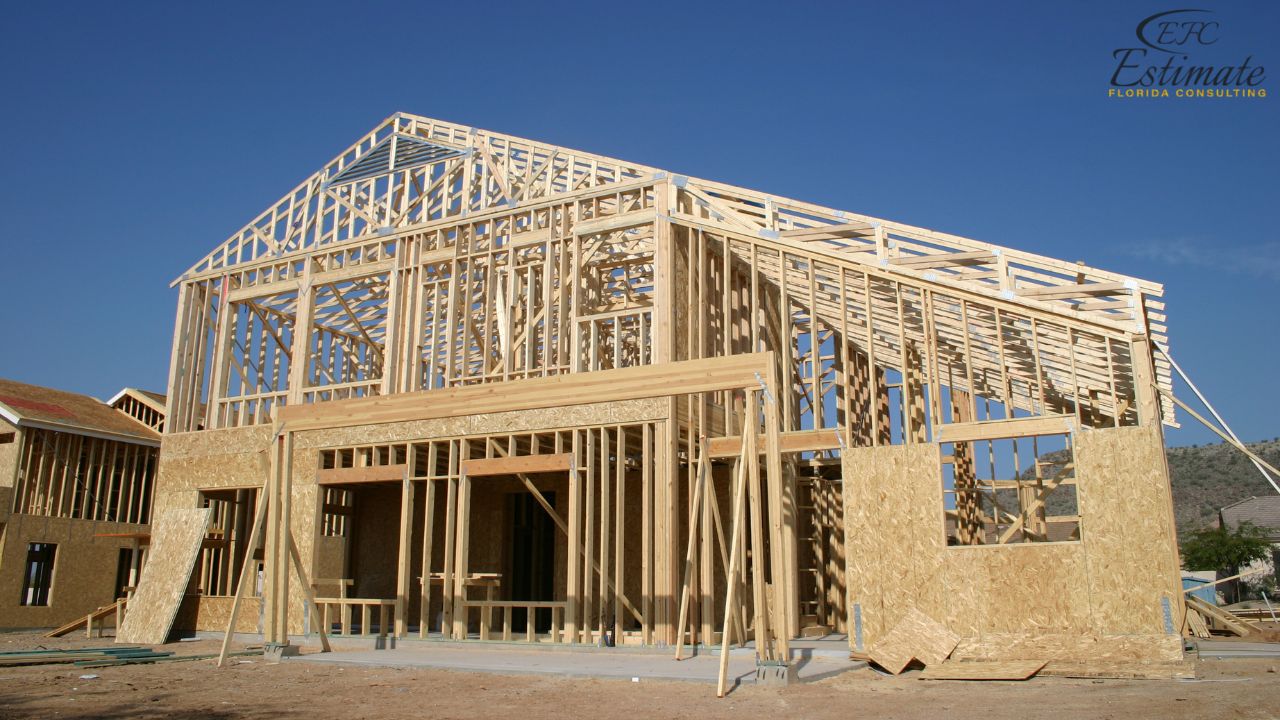
Commercial Construction
Commercial buildings, such as office spaces or retail stores, require robust designs that comply with safety and accessibility codes. These projects average $200 to $400 per square foot, depending on the level of customization.
Luxury Developments
Luxury high-rises and estates command the highest costs, ranging from $450 to $700 per square foot. These projects often incorporate cutting-edge technology, designer finishes, and high-end amenities.
Material Costs in Bal Harbour: A Detailed Breakdown
Materials account for a substantial portion of construction budgets, and in Bal Harbour, the costs are influenced by demand, supply chain issues, and building code requirements. Below is a detailed breakdown:
Material Type | Cost Range |
Roofing (Metal) | $8–$14 per sq. ft. |
Roofing (Asphalt Shingles) | $4–$6 per sq. ft. |
Concrete (Standard) | $150–$200 per cubic yard |
Flooring (Luxury Vinyl) | $4–$8 per sq. ft. |
Drywall | $1.50–$3.50 per sq. ft. |
Insulation (Spray Foam) | $0.90–$1.50 per sq. ft. |
Material selection is critical for both cost control and compliance with Miami’s stringent codes. For instance, roofing materials must withstand high winds and salt exposure, while insulation must meet energy efficiency standards.
Your Trusted Partner in Construction Excellence - Starte Now!
Labor Costs in Bal Harbour: A Comprehensive Guide
Labor costs in Bal Harbour reflect the high demand for skilled workers in the region. Hiring experienced tradespeople ensures quality construction and compliance with local codes. Here’s an overview:
Trade | Hourly Rate |
General Contractors | $70–$120 |
Carpenters | $40–$60 |
Electricians | $50–$80 |
Plumbers | $45–$75 |
Masons | $40–$70 |
High labor costs in Miami are often justified by the complexity of projects, especially those requiring advanced technical skills or specialization.
Permits, Fees, and Additional Costs
Permits and fees can be significant in Bal Harbour, often accounting for 5–10% of the overall project budget. Costs vary depending on project size, type, and location:
Permit Type | Cost Range |
Residential Building Permit | $2,000–$5,000 |
Commercial Building Permit | $5,000–$20,000 |
Demolition Permit | $500–$2,500 |
Zoning and Impact Fees | $1,000–$3,500 |
Ignoring permit requirements can lead to costly penalties or project delays, so it’s essential to factor these into your budget early.
Common Budgeting Mistakes to Avoid
- Underestimating Costs: Failing to account for all expenses often leads to budget overruns.
- Ignoring Contingency Funds: Allocate at least 10–15% of the budget for unforeseen circumstances.
- Overlooking Permit Requirements: Missing permits can halt construction and incur fines.
Cost-Saving Tips for Construction Projects in Bal Harbour
Plan for Energy Efficiency:
Investing in energy-efficient materials and systems reduces long-term operating costs. In Bal Harbour’s climate, high-performance insulation, energy-efficient windows, and cool roofing materials lower HVAC demands, cutting energy bills. Energy-efficient appliances and LED lighting further save costs. Many systems come with rebates or incentives, making them a cost-effective investment. Integrating energy efficiency early on helps maintain performance and reduces utility expenses.

Bulk Purchasing:
Buying materials in bulk can lower costs significantly. Contractors often secure discounts for bulk purchases of concrete, steel, and lumber. This strategy reduces unit costs, avoids supply shortages, and prevents price hikes during construction. Proper storage is essential to avoid damage and waste, ensuring savings are maintained throughout the project.
Use Detailed Cost Estimates:
Professional estimators provide accurate breakdowns, ensuring all aspects of the project—materials, labor, and equipment—are covered. Detailed estimates help avoid surprises, identify savings opportunities, and control cash flow. They also account for contingencies, risks, and potential cost-saving measures, keeping the project on budget and on schedule.
How Estimate Florida Consulting Can Help You?
Estimate Florida Consulting specializes in detailed construction budgeting and estimating services. We provide:
- Accurate Cost Estimates: Comprehensive reports for materials, labor, and permits.
- Material Takeoffs: Precise calculations to help you procure only what’s needed.
- Fast Turnaround: Estimates delivered within 1–2 business days.
Contact us today for professional construction budgeting services that keep your project on track.
Download Template For Construction Project Breakdown
- Materials list updated to the zip code
- Fast delivery
- Data base of general contractors and sub-contractors
- Local estimators

Conclusion
Effective budgeting is the foundation of every successful construction project in Bal Harbour. By understanding all cost components, including materials, labor, permits, and contingencies, you can confidently navigate the challenges of Bal Harbour’s unique construction landscape. Estimate Florida Consulting provides expert budgeting services to ensure your project stays on track.
Frequently Asked Question
In construction, there are five main types of cost estimates, each serving a different purpose at various stages of the project lifecycle:
- Preliminary Estimate – Provides an early, rough approximation of costs based on limited information.
- Detailed Estimate – Offers a more accurate and comprehensive breakdown of costs, considering specific materials, labor, and equipment.
- Quantity Estimate – Focuses on the quantities of materials and labor required, typically used for large-scale projects.
- Bid Estimate – Created for submitting a proposal or bid for a project, including all costs necessary for completion.
- Control Estimate – Used during the project to track and manage costs, ensuring they stay within budget.
These estimates help guide budgeting, decision-making, and project management throughout the construction process.
A personal budget should include the following four components:
- Income – All sources of income, such as salary, freelance work, or other streams of revenue.
- Fixed Expenses – Regular, predictable costs that remain the same each month, like rent or mortgage, insurance, and utilities.
- Flexible Expenses – Costs that can vary month-to-month, such as groceries, transportation, and healthcare.
- Discretionary Expenses – Non-essential spending on things like entertainment, dining out, and hobbies.
These components help organize and track spending while ensuring financial goals are met.
The Six-Tenths Rule is a method used for estimating the cost of a project or item based on the cost of a similar item with a different size or capacity. According to this rule, the cost can be estimated by applying the formula:
Cost2 = Cost1 × (Size2 / Size1) ^ 0.6
Where:
- Cost1 is the known cost of a similar item or project.
- Size1 is the size or capacity of the known item.
- Size2 is the size or capacity of the new item.
This rule gives an approximate cost and is generally accurate within a 20% margin when only rough estimates are needed, making it useful for quick calculations when precise data isn't available.
The most common method contractors use to estimate costs is Unit Cost Estimating. This approach involves calculating the cost based on a standard unit of measurement, such as:
- Price per square foot
- Price per cubic yard
- Price per unit of material
By determining the unit cost of materials, labor, and other resources, contractors can easily estimate the total cost of a project by multiplying the unit cost by the required quantity for each item or material. This method is straightforward and widely used for its simplicity and accuracy in many types of construction projects.
Comprehensive Trade-Specific Estimates
At Estimate Florida Consulting, we offer detailed cost estimates across all major trades, ensuring no part of your project is overlooked. From the foundation to the finishing touches, our trade-specific estimates provide you with a complete and accurate breakdown of costs for any type of construction project.

Testimonials
What Our Clients Say
We take pride in delivering accurate, timely, and reliable estimates that help contractors and builders win more projects. Our clients consistently praise our attention to detail, fast turnaround times, and the positive impact our estimates have on their businesses.
Estimate Florida Consulting has helped us win more bids with their fast and accurate estimates. We trust them for every project!

Steps to Follow
Our Simple Process to Get Your Estimate
01
Upload Plans
Submit your project plans, blueprints, or relevant documents through our online form or via email.
02
Receive Quotation
We’ll review your project details and send you a quote based on your scope and requirements.
03
Confirmation
Confirm the details and finalize any adjustments to ensure the estimate meets your project needs.
04
Get Estimate
Receive your detailed, trade-specific estimate within 1-2 business days, ready for your project execution.





